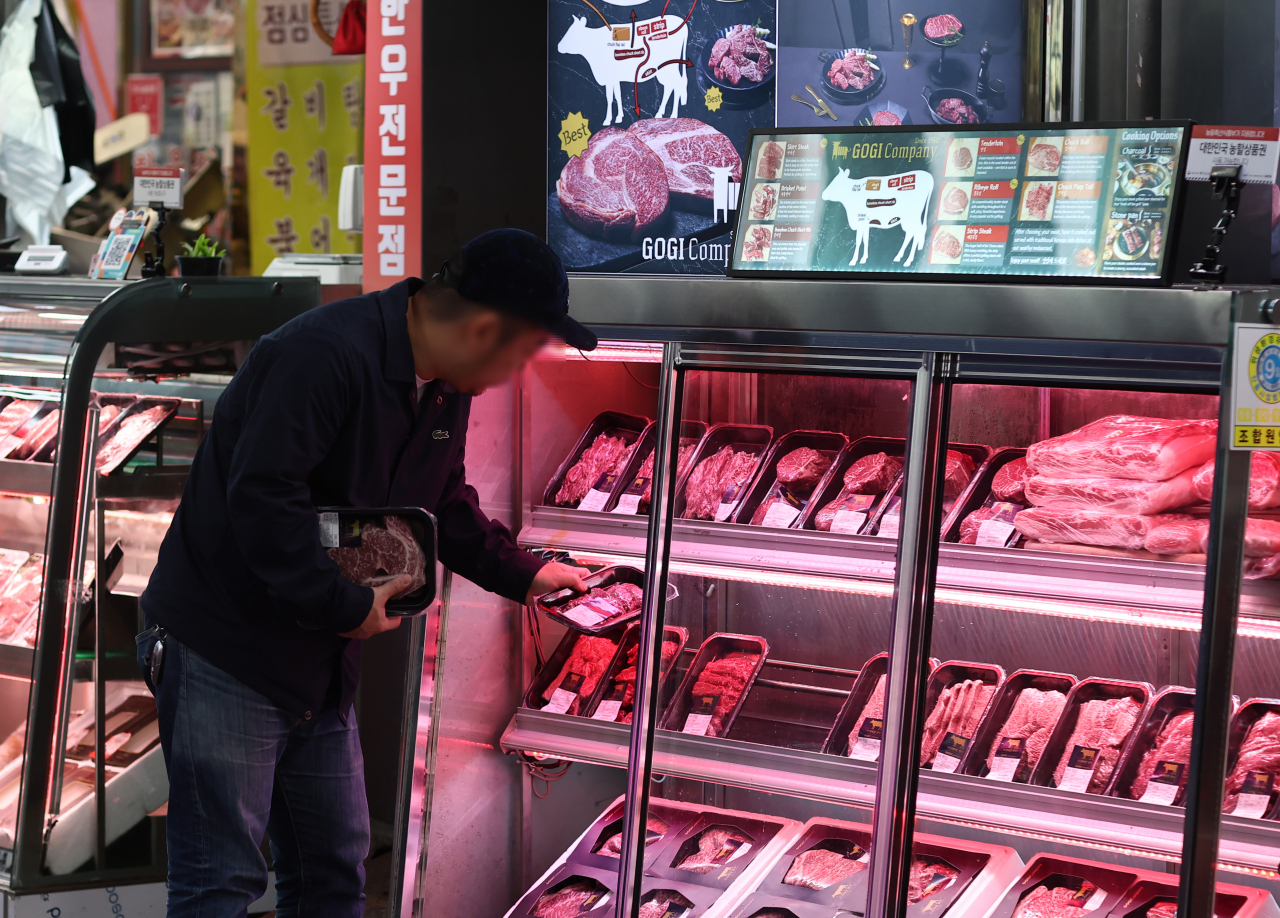Korean beef prices, poultry shares soar as cattle disease spreads
By Lee Yoon-seoPublished : Oct. 26, 2023 - 15:37

Prices of Korean beef rose following a series of lumpy skin disease breakouts in cattle across the country, data released Thursday showed.
According to data from the Korea Institute for Animal Products Quality Evaluation, the wholesale prices of Korean beef logged an average of 19,365 won ($14.25) per kilogram as of Wednesday. The price saw a 6.5 percent increase compared with 18,179 won a week ago prior to the outbreak. The first confirmed case of lumpy skin disease was reported last Friday.
During the same period, the retail price for a kilogram of first-grade Korean beef rose by 7.8 percent from 92,870 won to 100,200 won.
"The prices increased because there are currently delays in transporting cows to the slaughterhouse, caused by quarantined sectors near the cattle farms," said an official from the Hanwoo Association.
"Some 30 percent of cattle are currently missing their slaughter schedule, attributing to the decrease in the amount of cattle sold. This is contributing to price hikes," he said.
With the ongoing spread of the disease, stocks of sellers of poultry -- considered an alternative to beef in Korea -- surged over the week.
Shares of local chicken seller Foodnamoo closed at 9,200 won, rising 13 percent, compared to Oct. 19. Shares of Maniker, a local chicken producer, soared by 12.6 percent in morning trading on Thursday, compared to a week earlier.
According to the Ministry of Agriculture, Food and Rural Affairs, confirmed cases of lumpy skin disease in cattle, which could lead to a decrease in milk production and possible deaths for the cattle, rose to 38 as of Thursday.
The Agriculture Ministry said a possible cause of the recent outbreak could be due to blood-feeding insects such as mosquitoes that have been infected with the virus entering Korea via maritime transportation, due to increased exchanges with foreign countries following the end of the COVID-19 pandemic.



















![[Today’s K-pop] Treasure to publish magazine for debut anniversary](http://res.heraldm.com/phpwas/restmb_idxmake.php?idx=642&simg=/content/image/2024/07/26/20240726050551_0.jpg&u=)